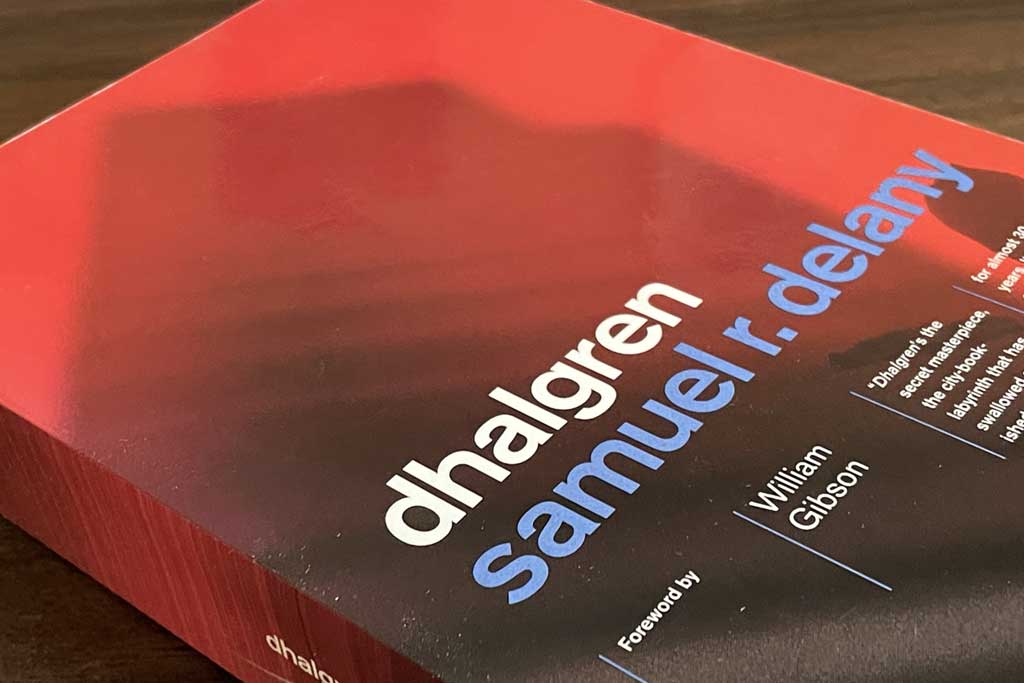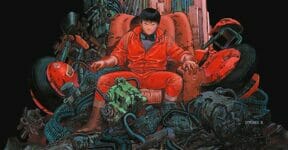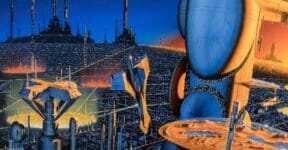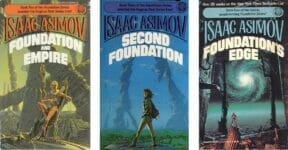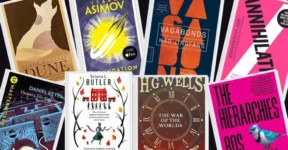Samuel R. Delany, author of Dhalgren, has dysmetria and dyslexia. He was once a patient in a mental health ward of a hospital and has frequently mentioned seeing burned-down sections of American cities that most people didn’t know existed at all. Much of his bizarre experiences as dyslexic became the foundation of the similarly strange sci-fi novel, Dhalgren, published in 1975.
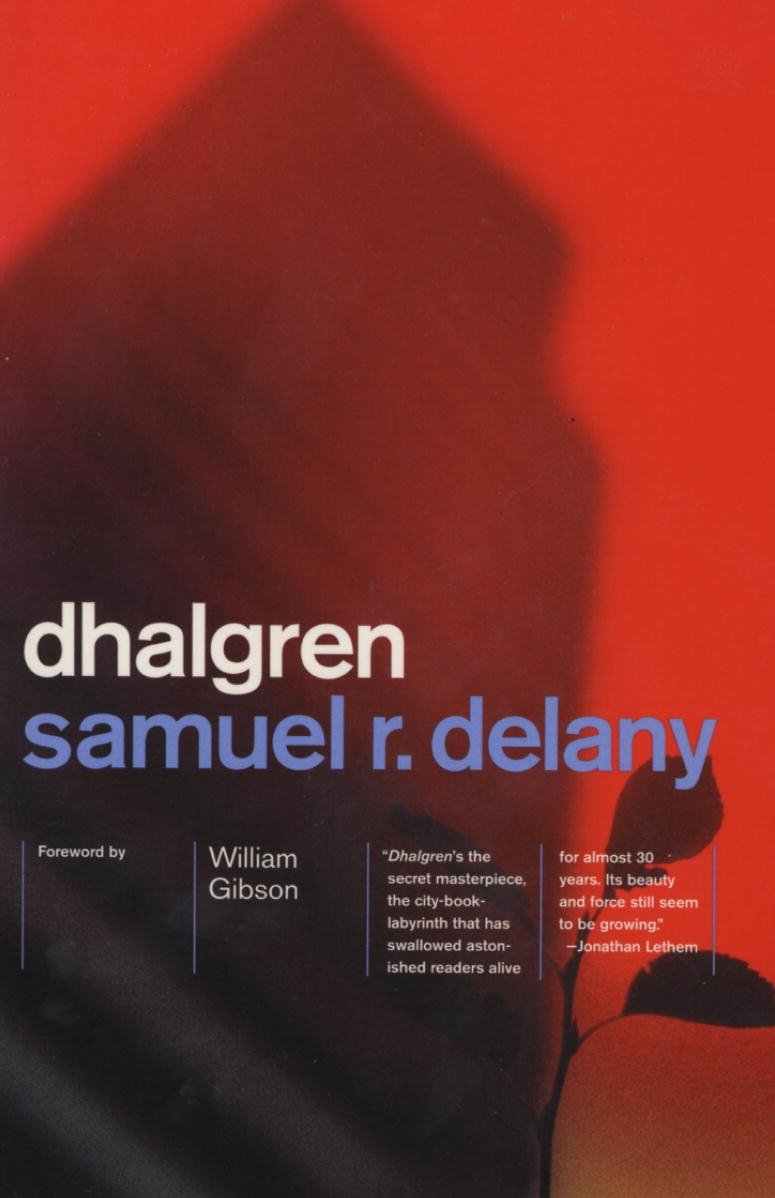
Total lack of sense of direction, ontological entanglements, and discontinuity are major elements of Dhalgren. Events in the novel are set against the backdrop of a metropolis ruin called Bellona, a temporal and spatial labyrinth in which the main character, known simply as Kid, seems to struggle to find himself. Bellona is described as total chaos, a city struck by a disaster so devastating that its physical structure and space-time continuum disintegrate. An anarchist community thrives in a confused society.
Kid first appears in the story as an amnesiac, a man who can’t remember his own name let alone much of his past. As soon as he enters Bellona, he bumps into two women and receives a welcome gift in the form of a wristband attached with protruding blades; people call it an orchid. Inside the city, the familiar modern American life is no longer in existence. It is a place inhabited by a communal hippy society and everybody can partake without restriction. Money doesn’t do any good in Bellona.
The sexual activities come in many configurations from heterosexual single encounters to group formats involving homosexuals, bisexuals and underage individuals. Everything happens in almost a timely that nothing seems like a peculiarity anymore. They hail one particular man as a champion owing to his sexual aptitude. A young white girl—whom he raped a while ago—is still looking for him, but not for reasons any civilized society would have in mind. They tolerate acts of violence and even murders to a certain extent.
Someone in the city gives the amnesiac man the name “Kid” partly because of his apparent innocence and youthfulness. The name soon becomes Kidd (with a double-d at the end) before reverting to Kid once again. It is as if the addition and omission of the last letter represent an acquired candor and the loss of naivety. Just like most people in the city, Kid has sex with multiple men and women, sometimes all at once. He finds comfort in the company of Lanya—one of the first women he encountered when entering the city—and then the two of them fall for a young boy named Denny. The relationship smoothly turns into a three-way sexual thing. Throughout his journey, Kid grows from a mere servant to an unusual love triangle into a full-blown poet and gang leader at the same time. Kid loses track of time and spatial awareness. Also, he only wears one sandal instead of a pair of them.
Kid has been carrying a notebook given to him by Lanya on his second day in the city. They describe many events and thoughts in the journal. As time passes and many things happen, Kid is not so sure anymore whether the writings are accounts of actual events or nothing but fictional stories. He can’t even tell with any certainty if every entry is done by himself or someone else. Many names are mentioned, including the titular William Dhalgren, but at this point in the running-in-circle plotline the distinction between the novel and Kid’s journal is as obscure as ever.
Dhalgren, the novel, describes quite a lot of things as they happen in the city. There is a lengthy third chapter that depicts Kid’s interactions with the Richards family, who somehow maintain an appearance as if nothing has changed in the city. Arthur still goes to work every day although there is no business or facility running in the city; his wife Mary pulls off a believable performance that everything is alright; daughter June turns out to be the young girl who was raped and keeps looking for the rapist George Harrison; his sister apparently kills son Bobby because he threatens to reveal her relationship with Harrison. Again, the chapter doesn’t seem to bring the plot to real progress.
Admittedly, the novel delivers a reasonable amount of suspense in each chapter but it all feels like a loosely connected compilation of stories from Kid’s perspective. After more similar works until the conclusion of Chapter VII, the novel doesn’t offer any genuine conflict and resolution. The chapter has many journal entries which have appeared verbatim in the previous parts. The last section recalls the Kid’s early days in the city and gives accounts of his encounter with Lanya. Dhalgren ends with a remark that links perfectly with its own opening sentence, creating an ambiguous uncanny circle.
We think the persistent, deliberate pointlessness of Dhalgren is its biggest literary strength. The first half of the novel does have a plot, broadly speaking, before the novel suddenly transforms into a crumble of repetitive structure filled with random violence and sexual encounters. An obscurity of consciousness also is a major feature, considering that many pages are structured as if written by an amnesiac man. It is a literary exercise that ends with an obvious open-endedness; an element many find a virtue rather than a drawback.
Have you read Dhalgren? What do you think happens to the city and Kid at the end? We’d love to hear from you.
Other things you might want to know:
Some popular books by Delany:
- The Jewels of Aptor (1962)
- Captives of the Flame (1963)
- The Towers of Toron (1964)
- City of a Thousand Suns (1965)
- The Ballad of Beta-2 (1965)
- Empire Star (1966)
- Babel-17 (1966)
- The Einstein Intersection (1967)
- Nova (1968)
- The Tides of Lust (1973)
- Dhalgren (1975)
- Triton (1976)
- Empire (1978)
- Stars in My Pocket Like Grains of Sand (1984)
- They Fly at Çiron (1993)
- The Mad Man (1994)
- Hogg (1995)
- Phallos (2004)
- Dark Reflections (2007)
- Through the Valley of the Nest of Spiders (2012)
- The Atheist in the Attic (2018)
Awards for Delany:
- Pilgrim Award, for Lifetime Achievement in science fiction scholarship (1985)
- David R. Kessler award for LGBTQ Studies (1997)
- Induction into the Science Fiction and Fantasy Hall of Fame (2002)
- J. Lloyd Eaton Lifetime Achievement Award in Science Fiction (2010)
- Brudner Prize for contributions to LGBT studies and LGBT communities (2012)
- SFWA Grand Master by Science Fiction Writers of America (2013)
- Induction into the New York State Writers Hall of Fame (2016)
- Sir Arthur Clarke Imagination in Service to Society Award (2021)
- Anisfield-Wolf Lifetime Achievement Award (2021)
- World Fantasy Award (2022)
- Lambda Literary Award (2022)
Books like Dhalgren:
Critics and readers alike mostly agree that Dhalgren is a real peculiarity. There is not even a single novel, in any genre, that can give quite the same vibe. That said, there might be some books that come close or at least offer a similar narrative style such as “The Book of the New Sun” by Gene Wolfe and “The Doomed City” by Arkady and Boris Strugatsky.
Check out other articles by month:

